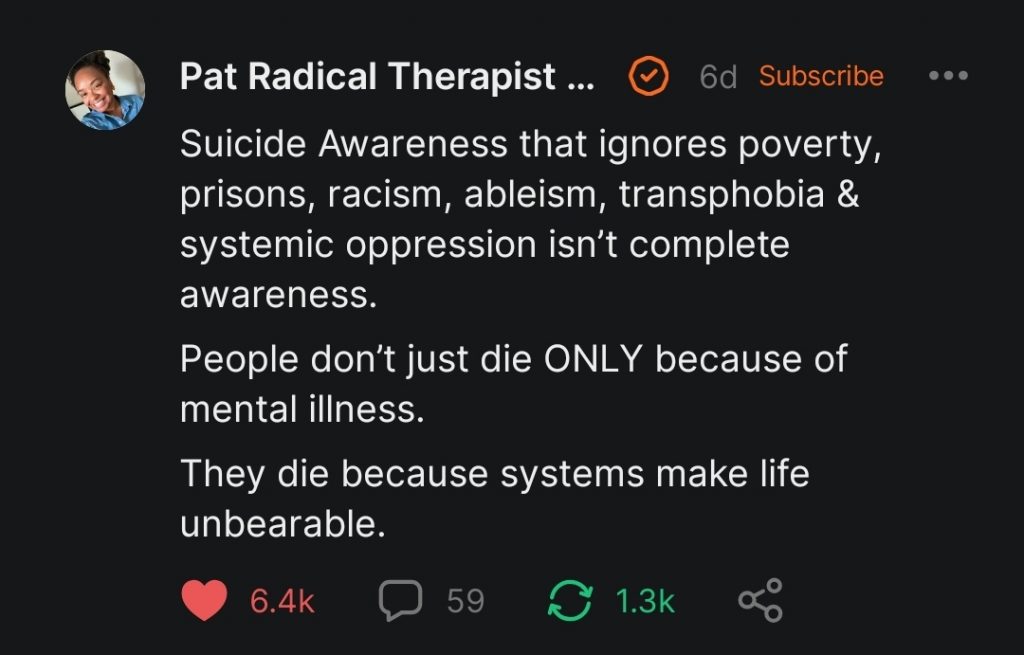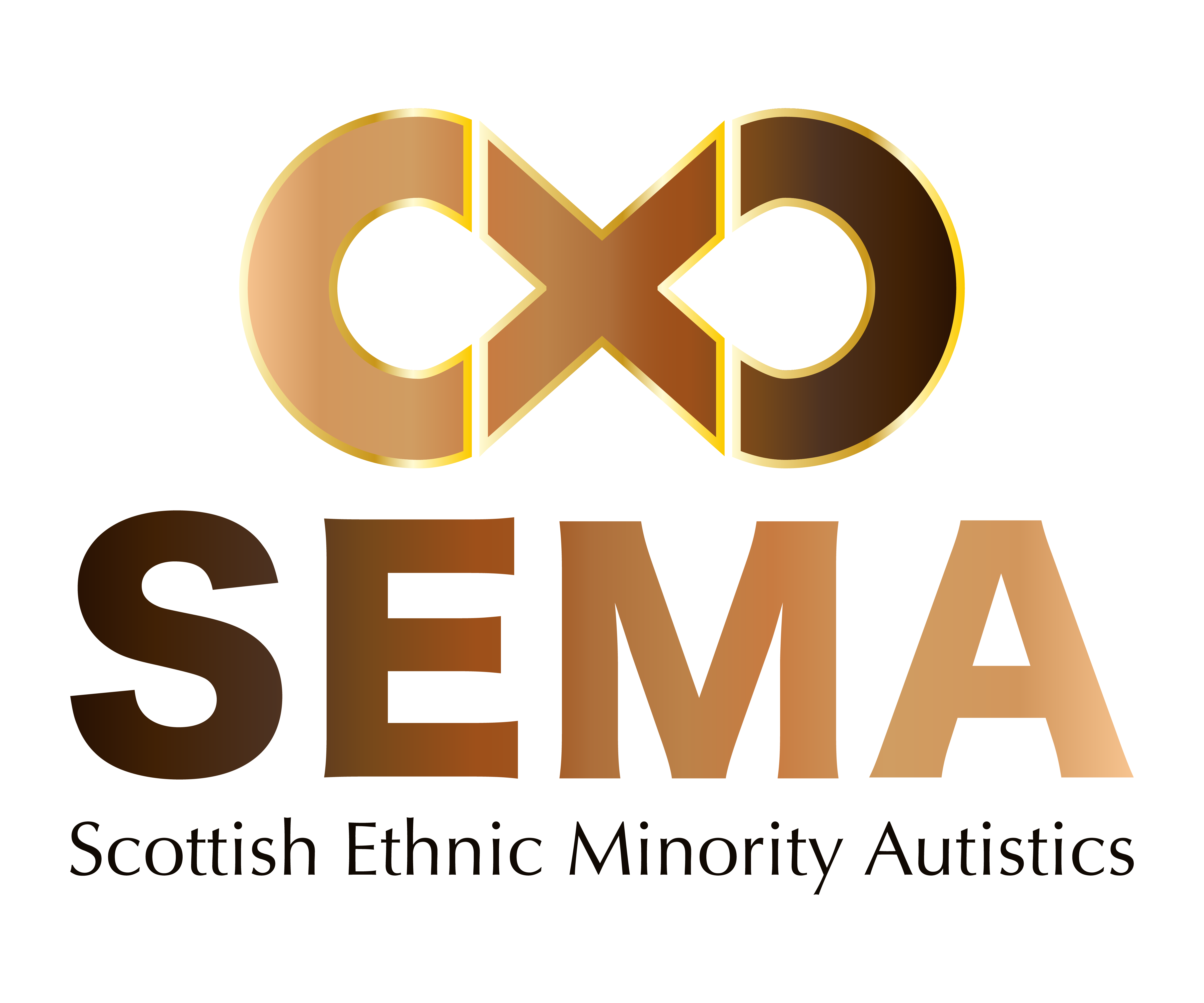This week has been Suicide Prevention Week. It’s not the awareness of suicides happening around that we need. It’s the causes and what we can do to stem them.

It is not surprising to find out that 41.4% of suicides are by Autistic people. But I will refute the reasoning cited by Psychology Today that this is because of our “Cognitive inflexibility, mental health issues, and social isolation may all increase autistic people’s risk of suicide.” Why are there mental health issues and social isolation? Cognitive inflexibility by whose standards and judgements?
I have been writing and delivering numerous training sessions in 2025, during which I have had opportunities to share observations with fellow Autistic trainers after listening to a range of Racialised Autistic individuals. Two main observations that initially stood out to me;
- Is it really Autistics who lack empathy?
- Whose Theory of Mind should we really question?
What do these questions have to do with the title of this piece? Everything!
It’s funny how it’s the ‘civilised’ societies of the West that ostracise Autistic ways of being, either by restricting access to financial support and school support, and poorer health outcomes. Yet, Autistic people living here are blamed for our higher-than-average suicide rates.
These cuts, the neglect and stigmatisation of being different, lead to rejection sensitivity dysphoria from an early age. What clinicians, educators, or even family members do not understand, or appreciate, is that RSD signals the brain’s pain receptors as though the body has been physically hurt. It is a tangible, real response to perceived or actual rejection. When does rejection occur in life? Through bullying, discrimination, being left out, abuse, and being criticised, to name a few. It comes in many forms, and exposure to it cannot always be controlled.
This leads to the second part: Elopement. It is well known that Autistic individuals have a tendency to elope (or some may say, run away). This is mostly talked about by carers of Autistic children and young people, especially those with learning disabilities and/or other high support needs. It is not really talked about by Autistic adults, except when explaining it as a type of trauma response (again, referring to the younger population). At a recent training day with Police Scotland, I explained Autistic trauma responses, and by that time, I had realised the internal manifestation of elopement. By then, I had experienced elopement several times outwardly, but more recently, internally. Being the stereotypical extremely self-aware Autistic woman (who has the tendency to intellectualise her own emotions instead of processing them), I did the very autistic thing and recognised patterns and connections. Stay with me… my point is coming…
I recognised from what I have witnessed and experienced firsthand, that suicide ideation stems from the need to elope. Why does the need to elope arise in a high intelligence/ ‘low adaptability’ type individual? Well, firstly, this individual sounds very much like PDA, so it’s no brainer that lack of autonomy and extreme anxiety will cause severe distress (caused by the previously mentioned factors). Secondly, the fight-or-flight response is too simplistic and inconclusive. The ‘concrete’ thinking that is used to describe us kicks in big time. But so does the rejection sensitivity mentioned earlier. The pain is too much to deal with. It is internal. It’s invisible. The only escape from a place of internal pain is not to exist.
Suicide can be a form of elopement for Autistics. That is the lesson here. It certainly explains the one I witnessed as a teen sibling. And the self-harm and close calls in other parts of adult life. But now, let’s add an additional layer: Racialisation.
The Scottish report on Suicide ideation – experiences of adversely racialised people recognised that racism is a trauma that we, racialised people, have to live with, whether that is interpersonal, institutional, or systemic. It’s a form of rejection that is constant in our lives, on top of the alienation of being Autistic. My EMDR therapist told me I was their first patient to process racial trauma. I certainly am not the first to experience it to this level. But perhaps, my already high anxiety, cortisol levels, and diminished autonomy couldn’t deal with the additional layer of nonsensical institutional and systemic injustice, and so my nervous system blew out, and I ended up with cPTSD, fibromyalgia, and the tendency to experience suicide ideation.
The hostile atmosphere that the UK has witnessed in the last couple of weeks is a form of rejection. Additionally, being forced to witness the absolute dehumanisation of Black and Brown people being slaughtered in the most brutal ways strips the PDA-er of autonomy and justice. It evokes a trauma response. We are stuck. It’s the ‘stuckness’ that manifests as elopement. Our ancestral homes are ruined by the white man’s savagery, with his ongoing insatiable thirst for resources and power, but we are not welcome here either. It’s almost like our existence is the problem.
Over the recent weeks, I have seen an increasing number of Autistics sounding the alarm bells, well before mainstream society picked up the signals. It was the racialised Autistics. I was telling a colleague how, for our local area, which has become a focal point of rising Scottish fascism, I sounded the alarm bells TEN YEARS AGO. She was actually a witness to this.
This capitalist and colonial system is killing off the canaries (and literally speaking, they are also classed as vulnerable). The capitalist need for these canaries was to serve as a warning system. So why is our threat to existence being taken lightly, in fact, blamed on us?
Sofia
